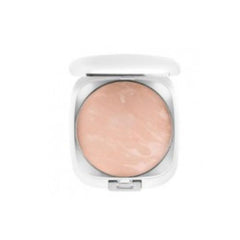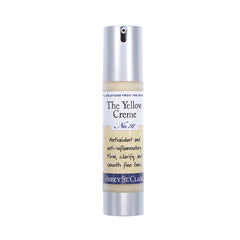Why Are Antioxidants So Important In Skincare?

If you’re into nutrition science, you’re probably already aware of some of the benefits of including antioxidants in your diet. From fighting cancer and heart disease to improving vision and lowering the risk of diabetes, these compounds seem to be nothing short of magical. And yet, once you’ve eaten your blueberries and sipped your fresh-squeezed orange juice, isn’t your job done? Those antioxidants are banishing unruly free radicals and restoring order to your body’s cells.
You will also find commercial skincare products that tout antioxidants as healing ingredients. There are benefits to adding antioxidants to your skincare routine even if your diet includes plenty of them. After all, your skin is the largest organ in your body, and its absorptive properties are what make it such a powerful ally in maintaining your good health.
Here are some of the amazing reasons you should be using antioxidants for healthy skin!
Think of antioxidants as an important defense mechanism that helps to keep your whole body healthy.
The power of antioxidants lies in their ability to fight free radicals.
What are free radicals?
Free radicals are chemical compounds that steal electrons from your body’s tissues, upsetting the delicate balance of homeostasis your body works so hard to maintain. A few missing electrons here and there won’t cause you too much trouble, but if you’re exposed to enough of these chemicals over time, the damage may start adding up. High levels of free radicals have been linked to problems ranging from cancer to premature skin aging.
The bad news is that you live in the modern world, where you’re exposed to numerous sources of free radicals every single day. Breathe in the exhaust from a nearby truck or walk through a cloud of secondhand cigarette smoke, and your lungs will suffer the consequences. Eat a healthy lunch, and your body will still generate some free radicals as a byproduct of digestion. Hit the gym after work, and your cells will lose some electrons as a result of the strain—even though exercise is a healthy habit to maintain.
Similarly, your skin is exposed to just as many—if not more—free radicals than the rest of your body. Your skin is your defense against the outside world, and it gets assaulted with an onslaught of air pollution, sunburn, strange chemicals, and other harmful, electron-stealing and DNA-damaging influences every day.
The good news is that you can replenish those missing electrons and repair the DNA damage with antioxidants. Antioxidants act like charitable benefactors, circulating around your body and donating their own electrons to the cells that need them. On top of that, they can also help to repair existing cell damage and restore altered DNA to its original state, helping to lower the likelihood that long-term damage will occur.
The even better news is that these little free radical fighters work well wherever you apply them. You can consume plenty of antioxidant-rich foods to improve your chances of living a long and healthy life, and slather the antioxidants on your skin to fight surface-level damage at the same time!
In other words, incorporating antioxidants into your skincare routine will result in less chronic oxidative stress-related damage over time. This means your skin will stay healthier, more resilient, and younger-looking if you offer it plenty of antioxidant protection.
Let’s talk about some of the specific skincare benefits you can expect from choosing antioxidant-rich products.
By using a wide variety of antioxidants on your skin, you’ll help:
- Protect your skin from UV damage
- Encourage your skin to produce more collagen and elastin naturally
- Boost your skin’s hydration and suppleness
- Smooth wrinkles
- Lessen the appearance of discoloration
- Make the healing process more efficient
- Soften your skin
- Ease inflammation and restoring your skin to glowing health
- Prevent common skin conditions such as atopic dermatitis and psoriasis
- Fight acne
- Slow the aging process
- Combat the harmful effects of air pollution
With antioxidants, you may be able to ease, prevent, and perhaps even reverse many of the skin issues we typically think of as inevitable.
What kinds of antioxidants should you be using?
You might have noticed that we recommend choosing products with a “wide variety” of antioxidants. This is because each antioxidant fights damage in its own unique ways, and some antioxidants are more suited to specific tasks than others.
For instance:
- Vitamin C is one of the most well-known skincare antioxidants. It’s a powerful stimulator of collagen production, and it can also help lighten dark patches and marks on your skin. You can often see a noticeable, visible improvement in your skin after a few weeks of use. Note that vitamin C is often listed as L-ascorbic acid or ester-C on product labels.
- Vitamin E is another antioxidant that you’ll find on many skincare labels. It boasts all the same free radical-fighting properties of other antioxidants, and it also is an incredible moisturizer and wound healer.
- Ferulic acid isn’t as commonly known, but it’s often added to products alongside vitamins C and E to boost your skin’s ability to fight sun damage.
- Vitamin A—often called Retinol on skincare labels—increases the turnover rate of cells in your skin. This means old skin cells will be shed and replaced with newer, smoother cells more quickly. The end result is younger-looking skin with fewer wrinkles and fine lines!
- Coenzyme Q10—often abbreviated as CoQ10—is naturally produced by the body and works to maintain your skin’s youthful elasticity and texture. However, this production slows as the body ages and sustains damage. The good news is that you can replace your lost CoQ10 with supplementation, both in the form of capsules and in skincare creams.
- Phytoextracts can show up on labels under a number of different names, because there are numerous kinds of phytoextracts. These are plant-based botanical extracts that often provide specific benefits. Some of the common ones you’ll encounter include green tea, white tea, calendula, rosemary, and witch hazel, but there are many more.
- Vitamin B3—also known as Niacinamide—is another great option for fighting dark spots and improving your skin’s texture and tone.
- Resveratrol is the compound in grapes that arguably makes drinking wine into a health activity. It’s fantastic on the outside of your body as well as the inside, and offers anti-inflammatory benefits, boosts the production of collagen and elastin, and may help protect your skin from sun damage.
- Curcumin—the active ingredient that makes turmeric such a healthy spice— is well-known in the nutrition world as a powerful anti-inflammatory. It’s now being added to skincare products, so you can reap the same benefits topically as well as internally. It’s bright yellow, but don’t let that scare you away. It actually functions as a wonderful skin brightener!
Along with these heavy-hitters listed above, you can also find products containing selenium, zinc, copper, and the carotenoids beta carotene, lycopene, and lutein.
Bear in mind that many lab-created products don’t necessarily translate to benefits in the real world. Sometimes, all the processing and reformulating degrades the usefulness of even the most powerful antioxidants before they ever make it onto your skin. If you’ve tried antioxidant products before and you haven’t noticed much of a difference, this could be why.
That’s why we always encourage you to choose natural skincare products whenever possible! When you go natural, you’ll be using products that preserve the original integrity of these powerful compounds, so you can reap the benefits just as nature intended.
Leave a comment
Comments will be approved before showing up.
Also in Abbey St Clare Blog

The Wheel is Turning. Abbey St. Clare has Closed.
Hello Friends,
The wheel is turning. Transitions are on the horizon. It is with regret that after almost twenty years, Abbey St. Clare is winding down as retirement and a relocation take place in the near future. We will continue taking orders through September 15.

Fix These 5 Hair-Washing Mistakes For Healthier Hair
Is your hair feeling brittle? Scalp dry? Locks not as lustrous as you want them to be? It’s possible you’re damaging your hair with five hair-washing mistakes.
If you follow these guidelines, you will see significant improvement in your hair and scalp health.

Pamper Your Skin and Elevate Your Mood With Essential Oils
Have you ever caught a whiff of cinnamon and felt a boost in your mood instantly? Do you feel calmer and more at ease when using lavender lotion before bed? If you said yes, it’s not just a figment of your imagination!
Ask anybody who uses essential oils regularly, and they’ll probably agree: these natural botanicals can have powerful, positive effects on your mood and overall wellness.



